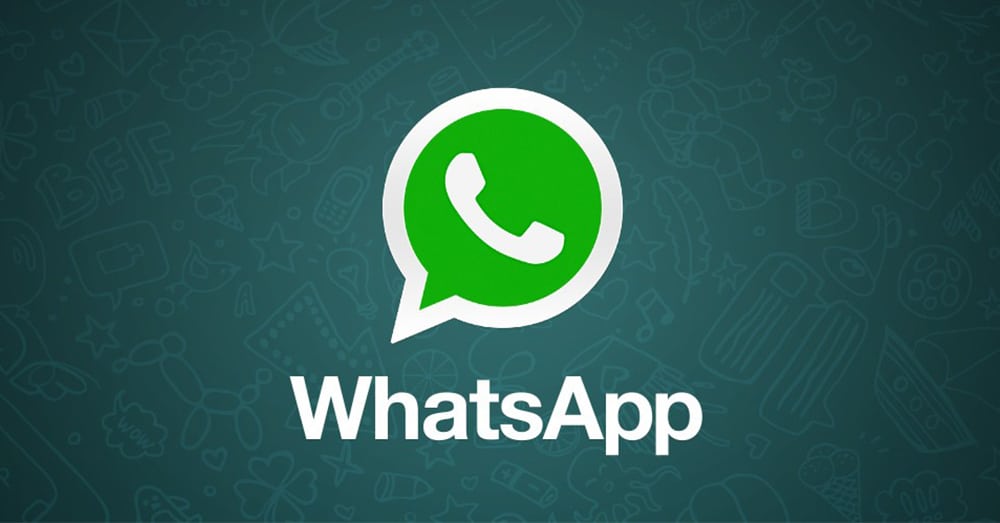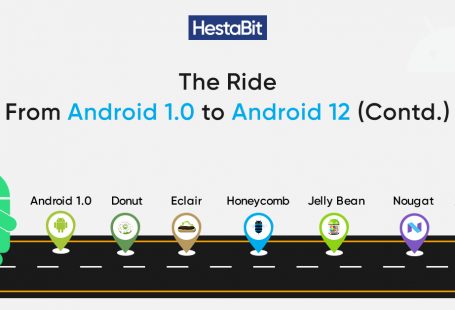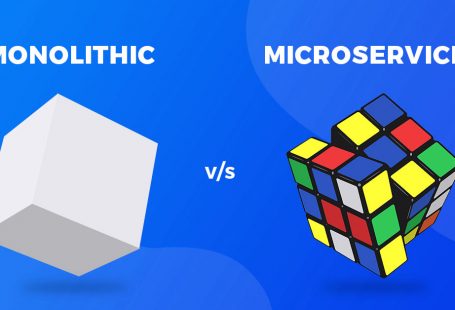“If you are not paying for the Product, You are the Product.”
The Social Dilemma (A Netflix Documentary)
This Netflix documentary exhibits how consumers on social media are being consumed by the underlying strategies of social media platforms, such as Instagram, Facebook. YouTube and now WhatsApp.
If you watched one, I am sure; you might have deleted several applications from your smartphone and would have become more vigilant towards your social media behavior.

Isn’t this really surprising? A thing such as “Social Media Behaviour.“ It takes us back to the time when we were just kids and only had access to keypad phones, at least that way, we were acquainted with the cooler side of the playgrounds and offline connections.
But we are not here to blame smartphones and technology and all the social media channels. However, we also cannot neglect the influence social media has on almost every aspect of our lives.
According to a former Google design engineer, Triston Harris, social media companies majorly focus on three factors :
- Customer engagement
- Platform Growth
- Advertisement and revenue generated.
Their only job is to increase your engagement to a particular platform and sell as many advertisements as possible. That means they are using us to try and gather information, our social media behavior pattern, and all the feedback to try on their new selling strategies.
Are the Social Media Consumers the New “Lab rats” for these Companies??
Well, looking at how we are being used to make money, it feels like we are the new lab rats for the data companies to check out their new features and products. And did you notice how we enjoy playing lab rats for social media??
It is alarming to watch us, not even trying to overcome the negative aspects of AI (Artificial Intelligence).
Technology looks like a dreamland but has a climax of a horror movie.
As brilliantly put by Triston Harris.
“How do we wake up from the Matrix when we are in the Matrix. Technology confuses me”.
As I am quoting this, I can feel how this gives me a reality check to our current social addiction. Look at how hooked we are to our WhatsApp. Statistics state that we spend more than 6 hours a day on average, solely on WhatsApp, checking our messages every 5 mins even when our phones do not ring.
Air, Food, Water, and WHATSAPP…
As soon as you make a new friend, you don’t invite them to your place, you don’t ask to hang out, but you definitely share your number to ping them on WhatsApp. Our elders might not know how to effectively download a video off YouTube or try gazillion features on Instagram, but they sure know how to chat on WhatsApp. That’s how vital WhatsApp is in our lives.
Currently, WhatsApp has more than 1 billion downloads on the Google Play store app. Although WhatsApp deserves this praise, it is simple to use, has a very basic interface for everyone to understand, and best of all, contains all the features required to connect to your social group, i.e., messaging, media sharing, voice calls, and video calls with utmost simplicity.

Moreover, there are certainly more features that make WhatsApp the most popular messenger in the industry :
- No Ads:
The best feature of WhatsApp is that there are no Ads at all.
- Super Cheap :
It allows you to send unlimited messages over the internet for FREE.
- Versatile:
WhatsApp works on almost every phone, including Android, Blackberry, Nokia, Windows phone, and iPhone.
- No International charges :
Ahem, Overseas who? Today thousands of messengers offer free services of texting and connecting with people on the other corner of the world, but WhatsApp started the trend.
- Personalize messaging:
You can broadcast your message to as many people in your contacts, they’d still receive it individually, which is the best part of using WhatsApp.
Apart from this, Unlike other applications, WhatsApp is well versed with even the slowest network servers like 2G.
It is obvious why people all over choose WhatsApp over any other application on the internet.
Moreover, WhatsApp was released with a bang. Want to know more about how this started?Let us dive into the significant history highlights of WhatsApp.
History of WhatsApp

- Jan Koum and Brian Acton created WhatsApp in Feb 2009 as a solution to expensive SMS services.
- They gradually added features such as media sharing, last seen, voice messages, and read receipts.
- In April 2011, WhatsApp received funding of $8 M Series A from Sequoia capital.
- WhatsApp gained over 200 million active users by 2013.
- By July of 2013, the amount received was $52 M as a series B by Sequoia.
- In the half quarter of 2018, there were 1.5 billion active users on WhatsApp while other messengers were struggling to cross 10M.
- Today, WhatsApp messenger is available on almost every device where on average, 65 Billion messages and 2 billion minutes of calls are made daily.
However, amidst all the popularity, WhatsApp also has been the center of many controversies.
WhatsApp Controversies
- Jan Koum (Founder of WhatsApp) leaving the Company:
When WhatsApp was launched, the founders wanted to ensure that the platform is Ad-free and is primarily focused on user experience. Even back in those days, people raised their concerns on data privacy, arguing that WhatsApp monetized by selling their user data. However, its privacy policy clearly mentioned that WhatsApp did not store any of the messages and provide end-to-end encryption, where only the sender and receiver will have access to their messages.
But soon, Facebook changed its policy and started gathering data from WhatsApp via few updates. Jan Koum stated that he was not at all happy with this decision of invading the user’s privacy and eventually decided to leave the Company in 2018.
- Telegram Founder calling WhatsApp dangerous :
Pavel Durov (Founder of Telegram) posted a blog titled “Why using WhatsApp is Dangerous.” He stated that the app’s backdoor bugs leave all the user data on the phone exposed and accessible to hackers, proving there is no point in offering end-to-end encryption.
- WhatsApp group chat data on Google :
The most recent controversy that made WhatsApp cut its own throat is where Google can index invite links to WhatsApp group chats, where Admins have the right to remain private. This basically states that anyone can join a good range of conversations on WhatsApp groups through a basic search on Google. With WhatsApp justifying absolutely nothing to such accusations makes its users lose trust in the app.
Although these accusations were made to prove the unconventional ways of WhatsApp revenue system, many other applications tried to interfere in the ongoing scenario exhibiting how WhatsApp uses our data to generate its revenue.
How WhatsApp Actually Makes Money?
- WhatsApp Initial Revenue Model :
The initial strategy of the founders was to position the brand on a global level as a synonym for an instant messaging application. This, however, required the Company to capitalize on network worth. That means creating a network first and money later. This strategy proved fruitful until Facebook acquired WhatsApp in 2014 for $19 B and changed the answers to WhatsApp revenue-generating system.
- WhatsApp Revenue Model 2.0 by Facebook
After the acquisition, Facebook introduced several strategic plans for WhatsApp’s new revenue model.
WhatsApp Business –

The Company introduced a WhatsApp business model that allows users to build their business profiles and obtain a verified business on WhatsApp. These businesses can create a profile and insert several important links to their websites, setting up autoresponders and even linking their landline number to the WhatsApp account. This feature is currently free to access; however, WhatsApp is making money through WhatsApp for Business API.
This way, enterprises could reach out to their customers through notifications and deal with queries automatically.
The best part of all, to avoid Ad spam, the messenger has only allowed businesses to send messages only to those users who contacted them first.
Now, how is this a revenue model?
Wait till you read this out.
WhatsApp charges the businesses for the slow replies. If the customers are not responded within 24 hours, enterprises will be charged for every message sent after that. The prices are fixed and vary for different countries.
Payments –
WhatsApp has also introduced a payment option within the application (for Indian users) for enterprises to use as a default pay to boost their market position. In the USA, the payment feature is called Venmo, launched by WhatsApp.
Future Revenue Generating –
Since every other application is busy copying features, why should WhatsApp be left behind?
The Company has planned to let the enterprises use status features, GIFs, text, and videos for sharing purposes up until 24 hours in order to promote and advertise their business.
Along with these strategies, WhatsApp has also updated its data policy. Users believe that the Company might use their personal data and sell it to third party companies for marketing purposes. This is by far the biggest controversy for WhatsApp that made it lose thousands of customers. Let us have a look at what the updated policy actually states.
WhatsApp Updated Data Policy: The Highlights and Confusion
WhatsApp is facing massive criticism due to its updated data privacy policy that has mandated every user to agree to its terms and conditions. Users have until February 8 to get along with the updated policy of WhatsApp. The policy merely focuses on how data can be imparted across business companies with integration to Facebook, the parent company of WhatsApp.
However, Users are concerned about the data discretion and have been switching to alternative messenger platforms. More than thousands of journals and videos state how people should shift to other messaging applications and completely ban WhatsApp from sharing sensitive data with other companies. Many of us are still confused if we should continue using WhatsApp or not but before we land on a conclusion, let us look at what WhatsApp said regarding the update.
- The policy says that the Company may share the major information with its branch to support, facilitate, and integrate their activities and services.
- Whatever information is collected by WhatsApp automatically will be transferred to Facebook.
- The will include your mobile number and the necessary information that you submit while creating a WhatsApp account.
- It may also gather and share the user activity, how frequently we use WhatsApp, and what other features we use from the application.
- Other than that, some device-level information will also be used, such as your mobile network and IP Address, and your location, but only if you permit it.
- All of this information will help the Company operate, understand, support, and customize its services, including the Facebook company products. The Company might also personalize content and features for its users by showing relevant Ads and offers across Facebook Products.
What are Facebook Products?
The Facebook products will include Facebook app, Messenger, Instagram, Oculus products, Facebook marketplace, Audience network, NPE Team apps, portal branded devices, and several other technologies and software offered by Facebook.
The Clarification :
Recently, the Facebook company has released an official statement on all its social media platforms, clarifying that the privacy policy update would in no way affect the privacy of its users and will keep its messages end-to-end encrypted.

source: www.whatsapp.com
The FAQs have also been updated on WhatsApp’s website in response to the backlash received by its competitors and users.
In case you are still uncertain about the Company’s data-sharing procedure and its impact on your personal chat, we have tried covering some of your primary concerns in the clarification below.
What will happen to your messages? Will they be stored?
No. According to WhatsApp’s privacy policy, the messages will be deleted from the Company’s servers once they are delivered. WhatsApp will only store a message if it cannot be delivered immediately. In that case, the text will be held in an encrypted format for up to 30 days while the Company is trying to deliver it. If not returned even after 30 days, the message will be erased from the server.
Moreover, if you delete your WhatsApp account, it will not impact any previous data shared within the app.
What sort of data will be shared with Facebook?
We are already familiar with Facebook sharing data to its child companies in order to understand our marketing pattern and show us relevant Ads. This might have happened to you a thousand times when you talk about getting a new pair of shoes, and the very next day, your screen floods up with Ads showcasing various shoes. Therefore, Facebook has been indulging data since its release. The only data that WhatsApp may share with Facebook will be your service account information, transaction data, mobile device information, and IP Address. Although this time, it may also collect some info at the hardware level.
Does this mean WhatsApp will show Ads now?
For now, the Company has shelved to keep the application Ad-free. In case you are worried about your messages, they would still be encrypted, and no data will be taken from your messages. However, increased data sharing with Facebook will lead to more relevant and improved Ads Facebook’s other platforms and channels.
How will Facebook data sharing with businesses work?
The updated policy explains that a business might get necessary data when users interact with them on the platform. The content shared with the business will be visible to several other similar companies, and that’s how WhatsApp will gain its monetary unit.
To clarify further, the Company states that the enterprises may also share this data with third parties to manage communications with their customers and offer better services. WhatsApp also recommends its users to read the terms and conditions thoroughly to understand this flow of information.
Is Shifting to Signal or Telegram Really a Solution?
What is the right step for us?
The standard practice to continue using a software is to accept its terms and conditions. If you no longer want to utilize its services, you can simply delete your account and switch to other messenger applications. Many users have migrated to similar applications such as Telegram and Signal to keep their sensitive data safe.
But if you give it a thought, Is this really about privacy?
Aren’t we all aware of Facebook’s abysmal track record on privacy and its reputation for making changes to its various terms and agreements?
On a personal note, shifting to another service is not a solution to data privacy. We have to understand that this is how every Company operates to study and personalize its services towards its users. The only difference in this scenario is that WhatsApp has come clean with its policies and data sharing terms to make it a more transparent process for all of us.
Final Thoughts
With the recently updated privacy policy, WhatsApp has received several thoughtful questions. Irrespective of all the myths and the facts stated in this article, WhatsApp has offered us excellent services all these years. We believe it is the start of the decade, where we should not just rely on any news that reaches on social media channels without any base. As we represent our technology industry, it is only evident that we state what an ideal solution to our audience is. We hope we were able to justify how the new WhatsApp update may or may not impact our social life. Let us know what your views on this data policy are.








